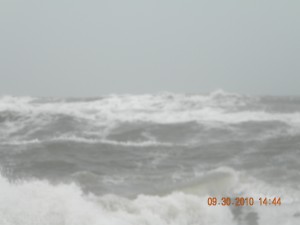We all know how hard it is to see mistakes in our own writing. Sometimes even when someone points it out to us, we still can’t “see” it. We can see the mistakes where they flagged them, but we can’t see the same mistakes elsewhere in the manuscript.
I’ve struggled with this in my own work. For months, my critiques have included “boring verbs,” “generic description,” and “telling rather than showing.” With my brain, I understood what the critiques meant. Where the critquers marked passages, I saw the problems. But I could not see the problems where they had not flagged. I knew the same problems must exist in every scene, yet try as I might, I could not see them for myself.
How frustrating!
The reason those critiques are problematic is that generic, telling, boring words do not create a visceral connection with the reader. Instead of pulling the reader into the world of the story, making the reader feel what the character feels, the reader feels as if someone is reciting the story to them. This distance between the reader and the story is not what you want as a writer.
Still, the critiques kept coming in. I kept studying what they had to say. Then just this past week, something weird happened. As I prepared this month’s submission for critique, I said to myself, “That’s a blah verb.”
A little while later, I said, “Wow, that’s really generic.”
And then, “Geez, that’s totally telling.”
Wait…what?
Could I finally be “seeing” what my (incredibly patient) critique partners have been pounding into me for months? Maybe. I hope so.
The other part of the equation, of course, is: If I am seeing the problems, do I have the skill to fix them? Can I dig deeper, stretch farther, and make that elusive connection with my readers?
This possible breakthrough has me very excited, and I can’t wait to see if this marks another step up the ladder in my writing.
Have you ever suddenly “seen” flaws in your writing when you were not able to see them before?










Literary Senioritis
When I was in high school, people would talk about experiencing “senioritis” in the last year of school—that feeling that high school is dragging on too long and you are eager for the next stage of your life to begin.
I didn’t really understand what they were talking about until the middle of my junior year—my senioritis struck early. Suddenly, I felt “done” with high school. Not that there weren’t more facts and skills to be learned in school, but emotionally I had finished—I wanted to move on. With me restless and daydreaming, the next year and a half seemed very long.
Oddly, this is not the only time in my life that I have felt senioritis. In college and in every job I have had, there has come a moment where I am “done.” Not that I didn’t still enjoy my work, but a feeling that I had learned all I could in that place and it was time to move on. As if my personal growth required a change to keep me from stagnating. I never ignored that feeling.
I am experiencing senioritis again now. As my debut novel nears release, the familiar “ants-in-the-pants” sensation keeps me pacing the floor. All the knowledge about the business and the marketing I have accrued over the years is building inside of me, waiting for the dam to breach and let the flood go. I know I have more to learn, but it cannot be learned at this stage—I need to graduate to the next stage to continue to grow.
And so I sit here with anticipation tingling my skin, waiting for the launch sequence to commence in earnest. I alternately daydream of the perfect launch party and have nightmares about book signing disasters. I am as ready as I can be for the next chapter of my career, but still riddled with the anxiety of the unknown.
Literary senioritis: an uncomfortable sensation of feeling confined by my current writer cocoon yet feeling anxious about emerging as an author and learning to fly.
Do you ever feel that push-pull of wanting to stay where you are yet also yearning to be more than you are now?